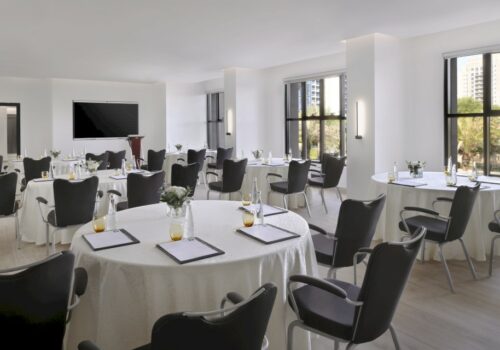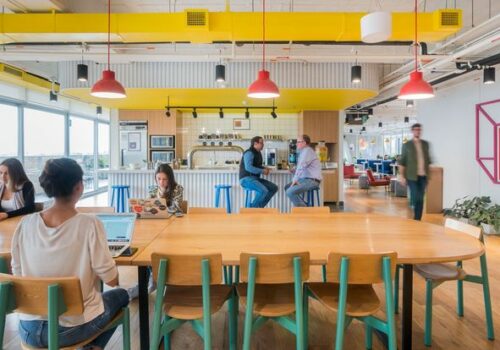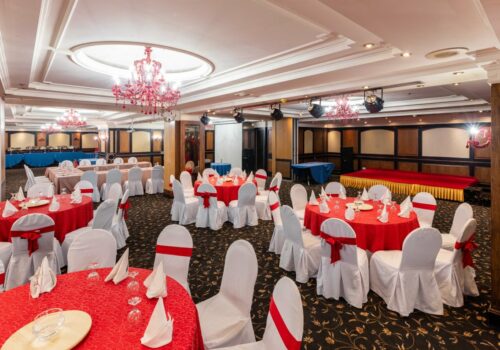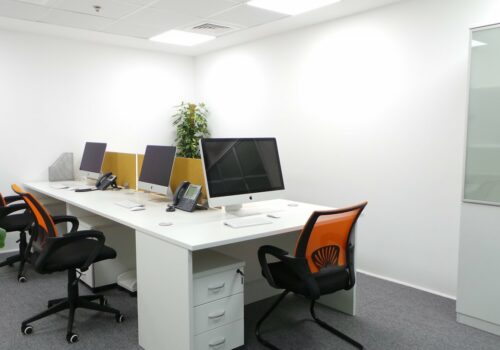Coworking vs. Traditional Office Spaces: Which Is Right for You?
Nowadays professionals have many options for their work choices, especially with the change in the way of work and the attitude towards workspaces. With the constant wrestling match between flexible coworking spaces and traditional office settings, business people face a series of questions to ask themselves before choosing between working in a traditional office or opting for a coworking business hub. It’s easy to jump to a decision solely based on the feel of the workplace and its trendiness. But before deciding on the final space it’s important to go over a few points and have answers to the following questions; What kind of worker are you? What type of environment do you need? What professional traits do you have that lend themselves to one work environment over the other? What’s your budget? Let’s have a closer look at which space is a more suitable solution for you.
Flexibility- Coworking vs. Traditional Offices
Traditional offices
Traditional work spaces often come with long-term leases, with very little flexibility. The traditional spaces often come with fixed working hours and limited remote work opportunities. When looking for structure and order, traditional work offices offer this fixed schedule that provides a structured and reassuring routine that’s good for productivity.
Coworking workspaces
Coworking spaces excel in providing flexibility, you can work out of it when you want without any long-term commitment. Whether you need a private office for four months, 10 dedicated desks for a week, or a day pass, business centers give you excellent flexible choices. Coworking spaces allow individuals the choice of when and where they would like to work from, with 24/7 access. This is particularly helpful for those who have a changing schedule( remote workers, digital nomads..) or need working hours to align with peak productivity times like new entrepreneurs.
Environment – Coworking vs. Traditional Offices
Traditional offices
Traditional offices are generally owned by a single organization where employees work in the same location each day for fixed working hours so it’s easier to create and maintain a company culture. While employees spend time and money commuting, traditional offices can also foster a stable and routine environment for employees with a sense of familiarity, stability, privacy, and a clear separation between work and personal life. In traditional office spaces, it’s easier to maintain security and privacy. Since the location is the same, installing and maintaining secure networks and privacy measures is crucial for handling sensitive information.
Coworking workspaces
On the other hand, coworking spaces have gained popularity as a dynamic work environment. They offer a shared workspace where individuals from different companies or industries come together to work. These spaces are characterized by their open layouts, and communal areas that promote a dynamic and creative atmosphere and can boost motivation and creativity. They provide an opportunity for professionals to collaborate and network with a diverse range of people.
Costs and expenses – Coworking vs. Traditional Offices
Traditional offices
Traditional office spaces often come with high overhead costs, including long-term leases or renting office space, utilities, and maintenance. This can vary widely based on location, and the amenities provided.
Coworking workspaces
One key factor to consider is cost-effectiveness. Coworking spaces require lower upfront costs and offer more flexibility in terms of leasing options, allowing individuals and small businesses to pay for only the space and services they require. This cost-effectiveness is an advantage for businesses looking to reduce their overhead.
Networking – Coworking vs. Traditional Offices
Traditional offices
Networking in traditional office spaces may limit interaction with colleagues within the same organization, focusing on building relationships within the same organization. Networking opportunities often revolve around connecting with professionals within the same industry.
Coworking workspaces
Coworking spaces are designed to attract freelancers, entrepreneurs, and startups. They enrich interaction among members, leading to potential collaborations, partnerships, or even business ventures. This environment can also be very beneficial for creative professionals and entrepreneurs looking for fresh business opportunities.
Ultimately, the decision between coworking and traditional office spaces depends on cost, flexibility, networking, personal preferences, and business needs. Both options offer advantages, and the decision should align with your specific goals and needs. Whether you thrive in a traditional office or embrace the dynamic nature of a coworking space, the key is to find the space that unlocks your full potential and productivity.




